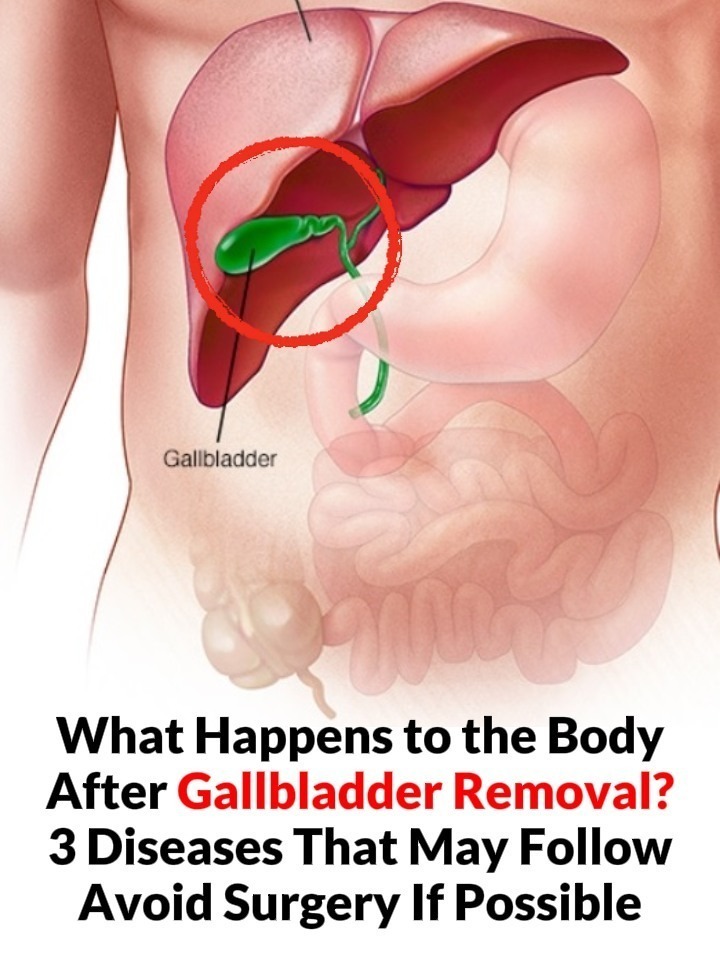Gallbladder removal—also known as cholecystectomy—is a common surgery performed when gallstones or inflammation cause chronic pain or digestion issues. While it’s often medically necessary, removing the gallbladder can lead to new health challenges.
Here’s what happens to your body after the gallbladder is removed, and three health issues you should watch for post-surgery.
🧠 1. Digestive Dysfunction (Bile Imbalance)
The gallbladder stores and regulates bile, which helps digest fats. Without it, bile flows continuously into the intestine—even when it’s not needed.
What This Means:
- Fat digestion becomes less efficient
- May lead to bloating, diarrhea, or indigestion
- Some people experience “bile reflux,” causing nausea and stomach pain
Tips:
- Eat smaller, low-fat meals
- Take ox bile supplements if advised by your doctor
- Avoid spicy or greasy foods immediately post-surgery
🩺 2. Increased Risk of Fatty Liver Disease
With bile flow disrupted, fat metabolism is impaired, potentially contributing to non-alcoholic fatty liver disease (NAFLD) over time.

